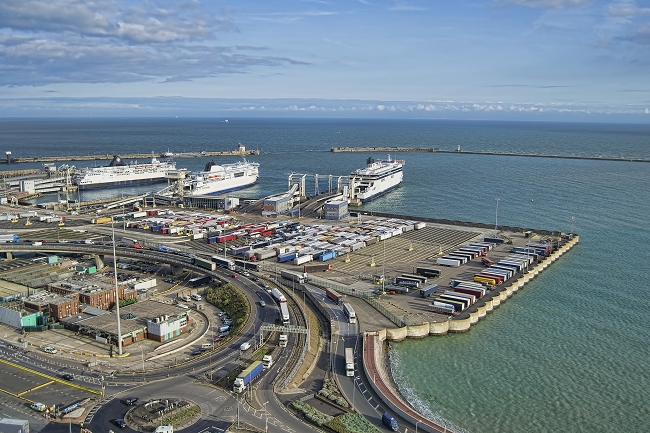
The Port of Dover has warned that passengers face delays of up to two-and-a-half hours this weekend, as the transport industry gears up for the summer rush.
Although port authorities said they have invested heavily in infrastructure to prevent the disruption, passengers are being told to arrive up to three hours before departure.
The investments and changes include “improved” flow rates for all kinds of traffic, more border checkpoints and hour-by-hour updates to allow passengers to avoid peak travel times, although enhanced checks by French officials have increased the time spent waiting at the border according to Sky News.
According to Bloomberg, more heavy trucks transit through Dover than all other UK ports put together, with about 110 miles of freight traffic each day.
Previous delays
As reported by the IOE&IT Daily Update, passengers faced delays of up to 11 hours last summer, with freight carriers waiting for as long as five hours before being processed.
Port of Dover CEO, Doug Bannister, told the BBC in May that it had done everything it could to prevent future disruption.
Although senior members of the government said Brexit was not a factor in the recent travel chaos, Downing Street conceded that “new processes” brought in since the UK’s exit from the EU had played a role.
During the 2022 Conservative leadership contest, then-contender Rishi Sunak promised to strengthen links with other European ports, such as Rotterdam, in order to reduce reliance on French-GB trade links.
Airline strikes
Freight operations face a difficult summer in the air as well as at sea, as airport workers continue a lengthy period of industrial action.
Strikes are planned at London Gatwick airport for Friday 28 July, ending on Tuesday 1 August, with four more days of strikes scheduled between Friday 4 August and Tuesday 8 August.
Unite’s secretary general, Sharon Graham, said that her union had “drawn a line in the sand” in relation to pay negotiations for 1,000 ground-based workers and warned that members at three other companies based at Gatwick were also balloting for further strikes.
‘Good experience’ for travellers
Stewart Wingate, CEO of the airport, told The Times that it had “put an awful lot of effort into making sure that the experience is going to be a good one” for passengers.
According to Condé Nast Traveler, several other airports have faced strikes this month.
Although some have reached a settlement with workers, others face an uncertain future, with Glasgow and Birmingham still in discussions with unions.



